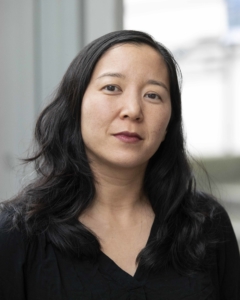“We lie to ourselves all the time, and I think fiction is a wonderful way to explore why we do that.”
—Aimee Phan, short-story writer and novelist
For author and teacher Aimee Phan—NEA fellow, faculty member in the MFA Writing Program and Literature Program at California College of the Arts, and three-time BABF speaker—art and a sense of connection to the world are inextricably intertwined.
Growing up the daughter of Vietnamese refugees in Orange County, CA, Phan looked in vain for stories that reflected her own reality and made her feel recognized and seen. Eventually, she found one in the memoir Farewell to Manzanar by Jeanne Wakatsuki Houston, first published in 1973 and reissued in a new edition in 2017. The book chronicles the author’s experience as a child in a high desert internment camp for Japanese Americans in World War II.
“It was probably one of the first books I read as a child that inhabited an Asian American point of view,” remembers Phan. “And it felt like a revelation. When you feel unimportant and marginalized by the dominant culture, it is incredibly inspiring and uplifting to realize your story can be heard, and that people will take it seriously.”
With her own work—her 2005 debut collection, We Should Never Meet (which won the Association for Asian American Studies Book Award in Prose), and her 2012 novel The Reeducation of Cherry Truong—Phan has done just that for readers who saw their own truths, whether emotional or literal, reflected in her narratives. Both books, though, says Phan, are deeply rooted in themes of internalized self-deceit.
“[We Should Never Meet] grew out of a short story I was struggling to write about, where a social worker is dealing with a foster child she cannot understand,” recalls Phan. “As I tried to understand her perspective, I realized I wanted to explore multiple points of view of this topic. So the collection grew from writing stories that inhabited these multiple perspectives. It was my cheater’s way of trying to write a larger project. It isn’t necessarily a novel in stories, but the closest attempt for me.”
Her second book, she says, “felt more traditional as a novel format. It still explored multiple perspectives, but we stay with Cherry, the narrator, who is navigating her extended family’s memories and secrets over forty years since the Vietnam War. I think both of these works were my attempts to understand how different narratives can be depending on the person telling it. We lie to ourselves all the time, and I think fiction is a wonderful way to explore why we do that.”
CCA’s MFA Program, where Phan teaches with other BABF-featured authors, including Jasmin Darznik, Tom Barbash, Faith Adiele and Leslie Carol Roberts, is a truly unique place to explore any aspect of craft, in ingenious ways. The program encourages writers to dive into many different art forms: to quote its website, “you’ll learn podcasting; how to make audio stories; how to craft a screenplay; how to prepare a full-length manuscript; and how to collaborate with painters, filmmakers, illustrators, photographers, and more.”
This multifaceted approach extends to outward engagement as well: instruction also focuses on the writer’s role in doing justice to social ecologies, climate change, and our physical and cultural environment.
Regarding the program’s dedication to acknowledging and engaging with the phenomena of climate change, Phan says, “I feel like the environment is impacting how writers consider setting. It is no longer in the background. It affects our characters, plot and mood. I see this entering every aspect of writing: who and what we decide to write about, what the emotional stakes of the narrative is, and how our characters move around their world. I certainly see it more in my students’ memoir and poetry, and I imagine it will also filter through even fictional stories.”
Further Reading:
See Aimee’s moving and thought-provoking 2018 op-ed in the San Francisco Chronicle, about her own family’s experience as refugees, and the harrowing family-separation policy being enforced at the United States’ borders.
Read an excerpt from We Should Never Meet here.



